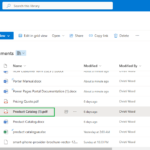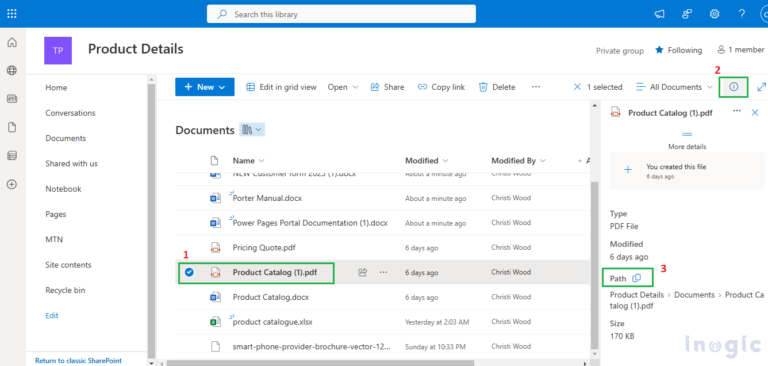Few things are more thrilling — or nerve-racking — than seeing an email in your inbox that says, “We’d like to schedule an interview.” Standing out in a sea of applications seems harder than ever, so landing an interview is a big deal. Once you do, it’s even more important to keep up the momentum by thoroughly preparing before you’re face-to-face with a hiring manager.
Knowing common sales interview questions, understanding why they’re asked, and having good answers prepared can make all the difference. We’ll dig into what to expect and how to prepare so you can enter your next interview with confidence.
What you’ll learn:
8 sales productivity pitfalls (and how to avoid them)
Get the Sales Productivity Workbook and avoid pitfalls like bloated tech stacks and approval bottlenecks.


What to expect during a sales interview
While every company has different ways of handling interviews, you will likely encounter these scenarios.
Phone screen with a recruiter
You’ll typically be contacted by a recruiter or screener first. Their goal is to gauge your fit for the position and determine whether you should move to the next step. They may do this by phone or video call, or they may simply email you a few questions. If you advance to an interview with a hiring manager, be prepared for an in-person or virtual meetup. This initial interview often lasts between 30 and 60 minutes, but it may not be your only one. Sales managers may conduct a few rounds of interviews and have you meet with different people you could potentially work with before making their hiring decision.
Behavioral questions
During a sales interview, expect a combination of behavioral questions, situational scenarios, and assessments of your sales skills. The interviewer will likely ask about your previous sales experience, including achievements, challenges, and strategies for success. They might present hypothetical sales situations to gauge your problem-solving abilities and find out how you handle pressure. You may also encounter role-playing exercises that simulate sales interactions so the interviewer can observe your approach and evaluate your ability to think on your feet.
Culture fit check
Hiring managers want to understand why you’re interested in working at the company and how you see yourself fitting into the culture. So they might ask about your understanding of the business — their products or services and target market, for instance — and what motivated you to apply. Interviewers are searching for you to provide details that aren’t in your application, resume, or cover letter that demonstrate the level of your industry knowledge and relevant experience.
Preparing for a sales interview
For any sales role, it’s important to showcase your interpersonal skills, enthusiasm, and willingness to learn and adapt. In my experience, coachability is often at the top of a hiring manager’s list, so consider how to highlight this desired skill during your interview. For example, if you’re asked to describe a time when a sale didn’t go your way, you could talk about how you sought advice from a manager, applied their feedback, and how it eventually led to a successful outcome.
Getting ready for a sales interview takes time and practice. Here are the steps you should take to prepare:
Step 1: Research the company and its people
A common kickoff question in an interview is “What do you know about our company?” Being able to answer this thoughtfully demonstrates your interest and preparation. Start by thoroughly researching the company, its products or services, target market, and competitors. Review its website and social media to get a sense of the culture, values, and priorities. Search for any recent news articles where it’s featured to learn about new achievements or initiatives. There are also AI prompts you can use to find financial, competitive, and industry information to help you prep your own insights and questions.
It’s also helpful to research key people at the company to get familiar with their backgrounds and sales philosophies. I recommend using LinkedIn or tapping into your sales network for information. Taking this initiative can help you connect with the interviewer while making a positive impression and differentiating yourself from other candidates.
Step 2: Focus on the role’s requirements
Next, carefully review the job description for the role you’re applying for. Make sure you understand the responsibilities and requirements. Practice tailoring your responses to highlight how your experience aligns with the expectations of the role and the company’s sales culture.
It’s important to use concrete examples to show off your abilities, achievements, and how you respond to different situations. For example, if you were applying for a sales development representative role, you could talk about your success identifying qualified leads that resulted in closed deals at your previous position. Use exact numbers and specific examples when possible to illustrate your successful track record.
If you don’t have a long list of details or meet every single requirement listed for the role you’re interested in, don’t be discouraged. Women often won’t apply for a role unless they meet 100% of the requirements. This is a contributing factor as to why we have fewer women in sales roles. My advice is to apply anyway. Most companies don’t need all of the “bullet points” they list.
Step 3: Practice for the part
After researching, it’s time to practice. Identify common sales interview questions (such as the ones in the next section) and think about how you would answer them. Write down your answers and say them out loud, paying attention to how they would sound to someone else. Ask a friend or family member to rehearse with you or record yourself answering the questions. Repetition and feedback will help you perfect your delivery and improve your confidence.
An interview can rattle your nerves, so practice breathing naturally and not rushing while talking. Whether you’re interviewing in-person or virtually, dress for the part and be at least five minutes early. This can help you gather your thoughts and feel calmer when it’s time to start.

Thanks, you’re subscribed!

10 common questions and answers for a sales interview
Interviews are an exciting chance to set yourself apart, and preparation is key. Here are 10 typical questions to help you approach your next interview with confidence.
1. What do you know about our company?
Why they ask: This sales interview question aims to find out if you’ve taken the initiative to prepare — a key part of any sales role. Interviewers are looking for enthusiasm and a strong grasp of the company’s values, priorities, and culture.
How to answer: Your answer should demonstrate your knowledge about the company, its products or services, market position, and priorities. Focus on their culture, values, and sales philosophy — especially if they align with your own so you can work in subtle messaging that you’re a good cultural fit for the organization. Explain what attracted you to the position and how you think you’ll contribute to their success.
2. Can you tell me about your sales experience?
Why they ask: Interviewers want to learn about your background in sales: what you studied, where you’ve worked, training programs you’ve completed, and sales methodologies you’ve learned. They’re looking to see if your experience is a good fit for their sales organization.
How to answer: When speaking about your experience, you should typically go back five or ten years, focusing on the most impactful roles that demonstrate your sales skills. If you don’t have that much experience, relate how a school project or working to raise money for a charity had relevant skills and effort. Be sure to communicate how your experience directly aligns with the requirements of the role. This is also an opportunity to showcase your communication skills and how well you can articulate your achievements and approach to sales.
3. What kind of sales environment motivates you?
Why they ask: This question digs into your work preferences and your potential compatibility with the company’s culture. Sales roles often require you to be both skilled at selling and highly motivated to perform. By understanding what type of work environment energizes and inspires you, interviewers can get a sense of whether your preferences would fit well with the rest of the sales team and the company as a whole.
How to answer: If you work best independently, speak to that. If you’re more comfortable as part of a team, talk about why. Personal work style preferences vary, and it’s important to be honest so interviewers can see where you thrive. But keep the company’s style in mind. For example, if you’re interviewing at a small mom-and-pop shop, you might not have a big team to lean on. In that case, highlighting your ability to work alone and support others would be wise. Talk about how you can flourish in the company’s setting while also articulating what you need to succeed.
4. What kind of sales cycles are you used to?
Why they ask: Interviewers want to know if you know what a sales cycle is and how they work. It signals how familiar you are with the industry. They also want to find out about your practical experience with the intricacies of the sales process. Your answer to this question reveals a lot about your sales background, approach, and problem-solving ability.
How to answer: Share your experience with sales cycles, such as which ones typically work best for you and why. Explain how your sales background aligns with the company’s sales process. For example, if you’re applying at a firm that does B2B sales and you have experience with long and complex sales cycles, be sure to talk about this. If you’re more comfortable with short B2C sales cycles, explain why and how it applies.
5. What does a normal sales day look like for you?
Why they ask: Recruiters often ask this question to learn about your daily routine, work habits, and approach to sales. It gives the interviewer an idea about the amount of structure you’re used to — including your ability to work independently and the kinds of management styles you’ve experienced. Your answer helps the interviewer predict your potential to succeed in specific sales environments.
How to answer: Describe your work habits, emphasizing how you prioritize your tasks, manage your time, and organize your schedule. Talk about what you do if something unexpected comes up — like a last-minute meeting or cancellation. If you work from home, you might talk about how you avoid distractions and stay productive. If you work in an office, it can be helpful to explain how you manage days when there are a lot of tasks on your plate vs. when times are slower.
6. How do you deal with rejection?
Why they ask: This question aims to gauge your resilience, emotional intelligence, and coping mechanisms when things don’t turn out as planned. How you respond gives interviewers insight into how you rebound from setbacks and maintain motivation and productivity.
How to answer: Rejection is an inevitable part of any sales job. Highlight your strength and durability by talking about the specific coping strategies you use to bounce back from disappointment and stay motivated. Frame negative outcomes as learning opportunities. Explain how when things don’t go your way, you look at it as a chance to try a new approach. Demonstrate your ability to maintain a positive outlook amid setbacks.
7. Tell me about a recent sale you won and your role in it.
Why they ask: Interviewers want concrete examples of your sales skills, experience, and contributions to successful outcomes. This question helps them understand your ability to effectively navigate the sales process — from prospecting to closing deals — and the specific strategies and techniques you used to do it. It also allows them to see how you communicate, negotiate, problem-solve, and perform overall.
How to answer: Highlight the skills, strategies, and specific steps you took to close the deal. If you worked independently — or as part of a team — speak to your contribution and why it was successful, articulating your sales process and demonstrating your value. Show off your problem-solving abilities and your approach to overcoming specific challenges in the sales process to give interviewers a sense of what they can expect if you join their team.
8. What’s a problem you faced where you had to think outside the box to solve it?
Why they ask: By prompting you to share a specific example that demonstrates your creativity and resourcefulness, interviewers can gauge your ability to think critically, adapt to challenging situations, and innovate to meet sales goals and resolve issues before they become devastating.
How to answer: Talk about how you approach unexpected challenges. If you solved a problem in an unconventional way, talk about the experience — including your thought process and why it was successful. Sharing an example of a time you identified a problem and presented a solution on your own lets the interviewer know you can come up with and implement a fix without needing help.
Join the Salesblazer movement
We’re building the largest and most successful community of sales professionals, so you can learn, connect, and grow.

9. Walk me through a sale that didn’t go well. What did you learn from the experience?
Why they ask: Interviewers want to know about your ability to reflect, learn from failure, and adapt your approach. By asking about a sale that didn’t go well, they can see if you understand how to think objectively about your performance, identify areas for improvement, and apply your learnings to future sales opportunities.
How to answer: Failure is an important part of growth and development, so speak to that in your interview. Be prepared to tell a story where you knew something felt wrong or ended badly in the moment or afterward and it drove you to change something specific about your sales process. Describe how you applied it and what the results have been. Get into the details of how you recognized you were taking the wrong approach and decided what steps to take to change. This not only shows off your self-awareness but also your willingness to improve.
10. What’s the best advice you’ve ever received?
Why they ask: This question gets at the heart of what matters to you, your personal growth, and your ability to learn from others. Interviewers want to learn about who and what inspires you, the lessons you’ve internalized, and how you’ve applied them in your professional life.
How to answer: This is a chance to talk about your values, philosophy, and other influences that have a specific tie to your approach to sales. Think about a moment in time when someone or a situation had a significant impact on you — a mentor showed you how to overcome a problem, the instructor at a training program revealed a new way of thinking for you, or you read a book and took a chance on doing exactly what it said. Form a story around this and tell it to the interviewer so that it’s clear how the experience helped you succeed in your sales career.
Bonus sales interview question: Sell me this pen
Why they ask: Interviewers typically ask situational questions to see how you respond on the spot. They want to understand how comfortable you are with selling, your ability to think outside the box, and how you perform under pressure. It’s a chance to show off your confidence and ability to recall and apply information in the moment.
How to answer: There is no right or wrong way to answer this question. Rather it’s a chance to show that you understand the sales process, are a good active listener, and can craft a persuasive — not pushy — sales pitch in the moment. For more tips on how to answer this question, read our full article.
6 questions to ask during your sales interview
Any time an interviewer asks, “Do you have any questions for me?” you should have three to five ready to go. Remember — you’re interviewing them as much as they are you. Getting your questions answered helps you get a feel for what it might be like to work there. It shows not just that you’ve done some research but also that you’re thinking about the possibility of working there long-term. If you don’t have any questions at all, the interviewer may take it as a sign you’re not interested in the role or that you’re inexperienced.
Here are some questions to consider:
1. How long have you been here, and what do you like most about your job?
This sales interview question helps you get a better sense of what it’s actually like to work there and gives you insight into the company’s turnover rate. It shows that you have an interest in their culture and how you might fit in.
2. Can you tell me a little bit about your sales process?
If you want to understand the working environment, this is a good question to ask. Getting a sense of the existing structure and steps helps you assess whether you have any experience with similar processes and if the place is a fit for your working style.
3. What is my potential for growth here?
This shows that you’re thinking about long-term opportunities and advancement. Understanding your growth potential provides insight into the company’s commitment to nurturing its talent and creating opportunities for career progression.
4. What are the biggest challenges your team is currently facing?
This question gives you a chance to peek under the hood, and potentially see any red flags. It also gives you a chance to jump in with a solution, something like “I hear you’re having trouble tapping into new territories. I built a process in my previous role ….”
5. How do you measure sales goals for my position?
Understanding key metrics associated with your role not only gives you insight into the company’s sales priorities, but it also gives you a clearer sense of your specific performance expectations.
6. What is your compensation structure?
This may be covered in your interview, but if not, asking about it demonstrates your interest in understanding the earning potential and rewards for high performance. Getting clarity on opportunities for financial growth is helpful to know before accepting a position so you aren’t disappointed or surprised later.
Nail your next sales interview
While there’s no way to anticipate every interview question and there are no one-size-fits-all answers, you should have a better idea of how to approach your next sales interview. Above all, it’s crucial to remember a few key things.
First, thorough research is essential; you can’t have too much information before your interview — just make sure you put it to good use. Second, practice answering a variety of questions to ensure you’re ready for any curveballs that may come your way. Lastly, maintain confidence and authenticity throughout the interview process. When you’re adequately prepared, you can confidently speak to why you’re the ideal candidate for the job.
Congratulations — you’re ready to navigate your next sales interview and land the job you’ve been working for.
What trends drive sales productivity today?
Get the State of Sales Report to discover productivity insights from 7,700 sales professionals.














